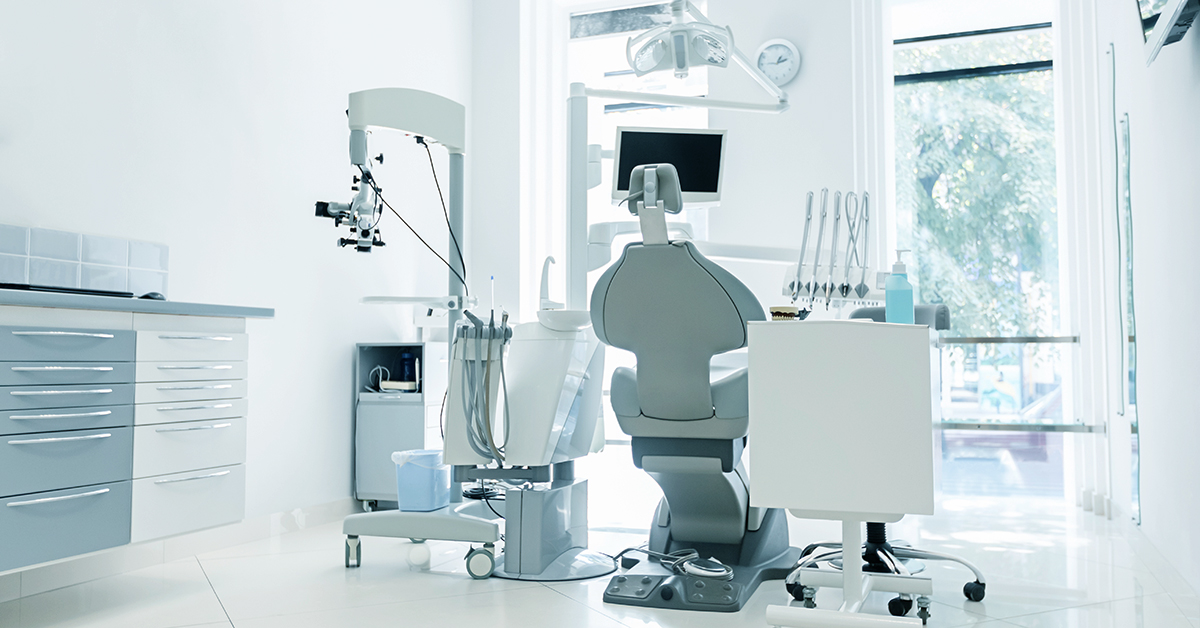How to ensure your capital expense purchase adds value to your dental practice
Keeping your practice’s finish out and equipment up-to-date can be crucial to maintaining relevancy and bringing new patients into your practice. Unfortunately, things like operatory chairs, computers and imaging equipment are rarely, if ever, cheap. This means that when making your capital expense decisions, it is essential that you complete your due diligence to ensure these new items elevate the value and are not just another expense.
“It’s a big decision to spend tens to hundreds of thousands of dollars on equipment for the practice, even if you have already determined that it’s worth it,” says CPA and Financial Advisor Heidi Barnett. “With a little due diligence, you can save yourself and the business money and time.”
It is best practice to think through equipment purchases in advance, allowing you to research and get the best price. Be proactive, don’t just wait for something to break.
Once you’ve decided to make a purchase, you may get the itch to move quickly and accept the first quote you get. Heidi suggests rather than rush into it, doctors should consider these steps before jumping in:
1. Know your capital expense budget
Owners should plan to invest dollars into practice improvements every year, but that doesn’t always equate to new equipment. Investing in your practice could mean continuing education for yourself or your staff, hiring a consultant, or other things.
The rule of thumb is that about 2-4% of gross receipts should be reinvested in the practice annually, on average. Although some years you may invest more, some less. If you know you want to invest in something that may be very expensive, like an i-CAT machine, you may want to save rather than spend one year in preparation for next year’s more significant purchase.
With her clients, Heidi uses a worksheet during consultations to determine a replacement budget and schedule based upon their current equipment’s lifecycle. Each year, you should reinvest; however, this figure may fluctuate. If you’re not spending something close to this number for a few consecutive years, you’re probably under-investing or could be falling behind.
2. Decide on how to pay for it
There isn’t a hard-fast rule here. Even if you have the cash on hand, financing should be considered an option if there is a great term or interest rate available.
If the purchase is a small to mid-sized priced item and you’ve budgeted the cash as part of your capital expenditure budget, the best plan is to pay for the item with cash.
However, for larger purchases, financing can be a good way to stabilize your budget. Just as you would shop around for the best priced product, the same goes for financing options. It’s best practice to get quotes from different banks to make sure you are getting favorable terms.
Heidi is seeing more doctors lease things like computers and office equipment. Due to the short lifespan of these types of items, lease payments are being treated as a fixed expense.
Similar to our guidance on leasing a car, whether this is right for you typically depends on your personality. If you need to have the latest and greatest in your office, then leasing may be for you.
3. Shop out the best price
It’s important to shop around to make an informed decision on both what to purchase and when. Some vendors may try to sell you on time sensitive “exclusive deals.” Don’t let vendors put pressure on when to buy, you are the only one who should decide that.
Don’t forget to get at least two quotes from different vendors. This will give you a good example of what is out there and at what price. It can also give you bargaining power with the vendor you want to purchase from.
For large or multi-item purchases, like equipment for several operatories, consider leveraging a member-based purchasing platform, like Elite Dental Alliance. Their member advocates partner with dentists and their teams to help navigate the complexities of making the right purchasing decision. They may even be able to negotiate special pricing.
“I recently had a client who was looking to purchase a CBCT, yet after reaching out to the preferred vendor, was still not getting a price she was comfortable with,” explains Heidi. “After reaching out to Elite, they were able to save her thousands off the purchase price through the same vendor she had planned to purchase through on her own.”
4. Claim your tax advantage
Getting a tax deduction should never be a reason to buy, but it can be a nice perk if you are going to do it anyway. Both the amount of the deduction and the timing of it can vary greatly based on your current circumstances.
For example, if you are going to have a big income gain in the current year, having the deduction that year would help decrease your effected tax rate. Whether or not you financed the purchase can also impact the amount of the deduction and the timing.
Be prudent around end-of-year purchases. If you need new equipment and that equipment will increase your ability to make more money in the future, buy before year-end. The Section 179 and bonus depreciation rules allow doctors to write-off substantial equipment purchases in the year it was placed in service.
It’s a good idea to work with your financial planner on this. Your projected income, projected effective tax rate and the method of payment are all factors your advisor can use to help guide you on when and how to take the deduction.
Heidi’s most simple advice, “It’s essential to reinvest in your practice. But, think ahead, don’t wait till it breaks.”
It may seem like a lot of factors to consider, but by planning ahead and engaging your advisor, you can feel confident that your new purchase will be working for you—both in your practice and on your balance sheet.
Does your CPA do more than just file your taxes or manage your bookkeeping? Our team of advisors not only help guide big financial challenges and opportunities but also the daily decisions that you want to get right. Reach out to our team to see how you could be getting more.














